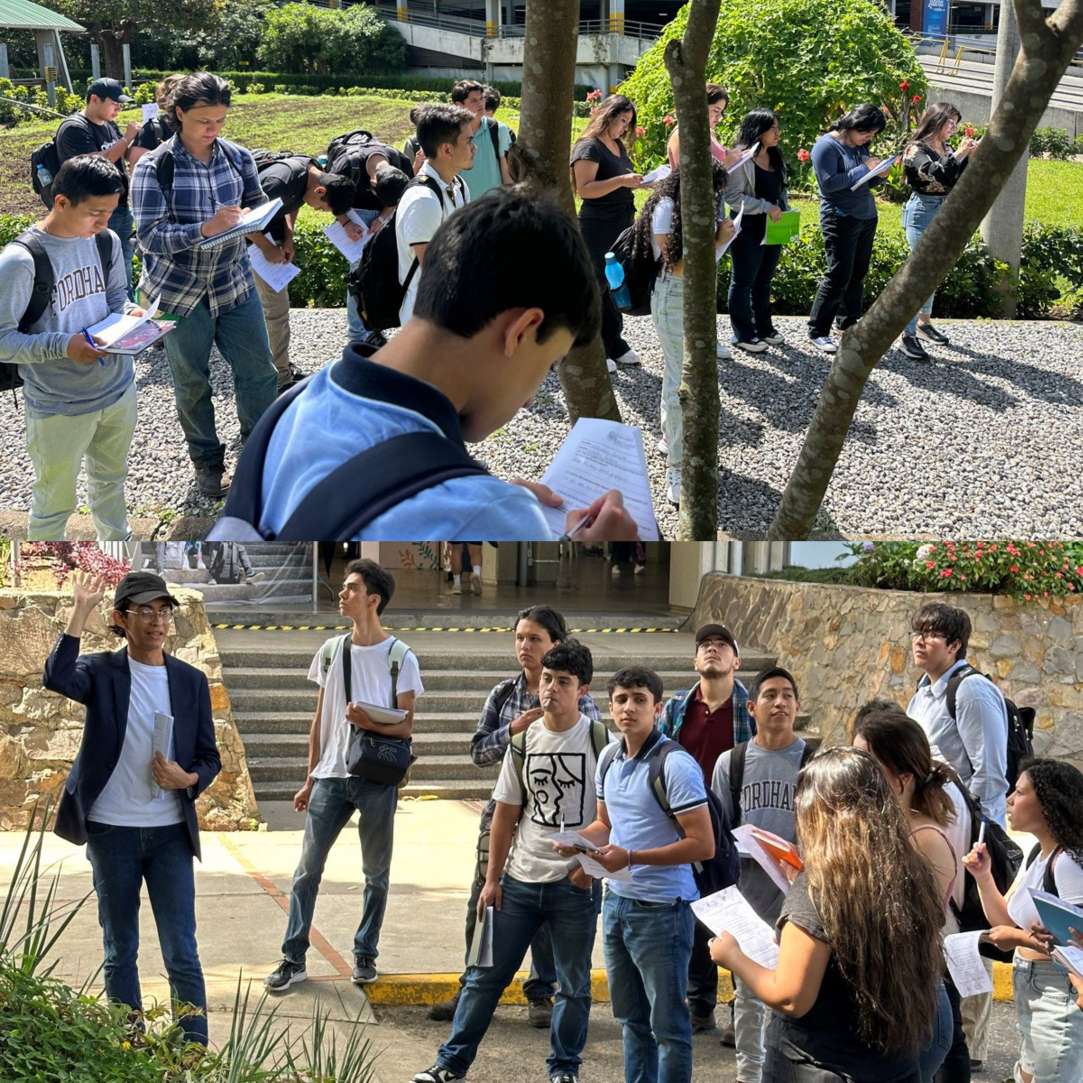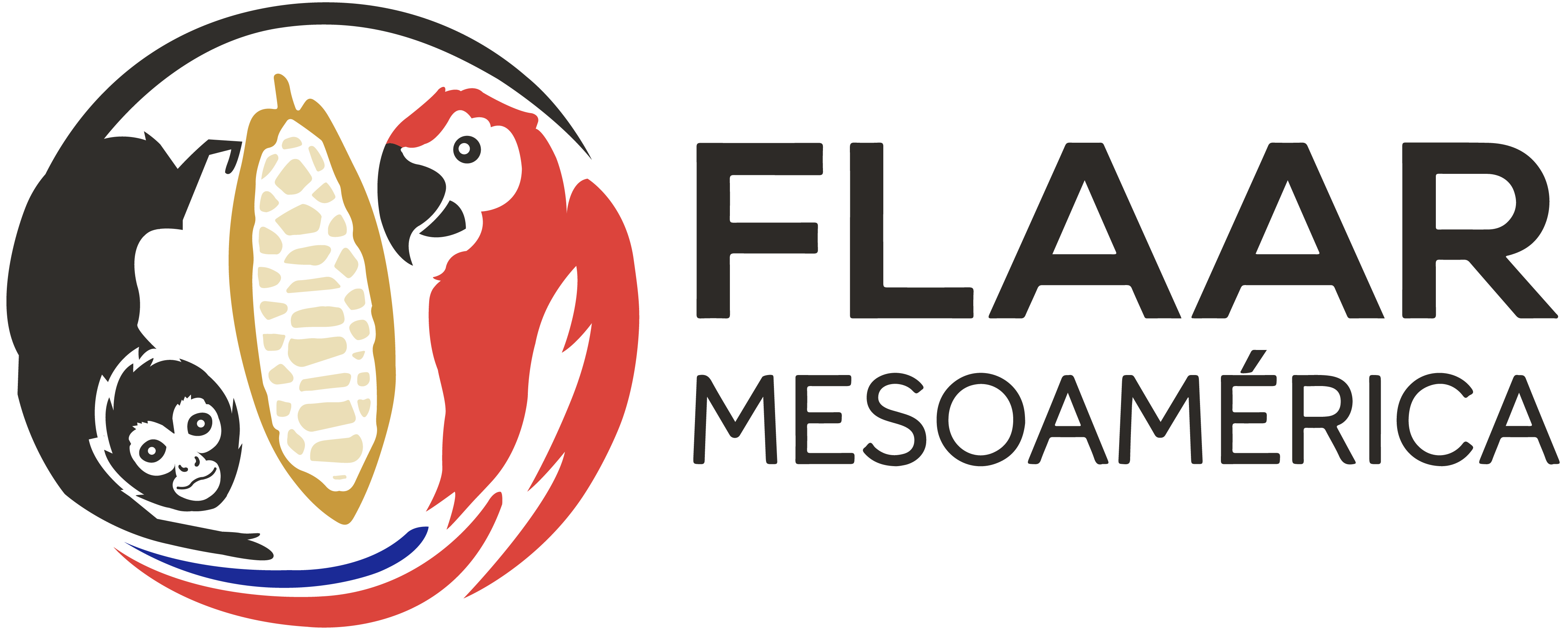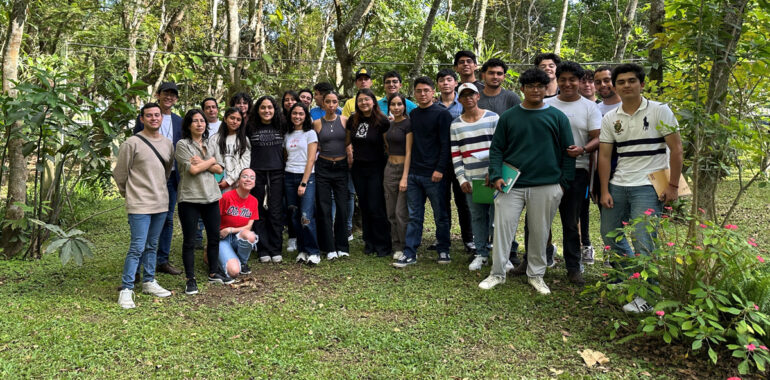Ethnoecology is the interdisciplinary approach that studies holistic ways in which nature is seen by different human groups or different cultures. In that sense, one of its approaches is through the study of the kosmos-corpus-praxis complex (Toledo and Alarcón, 2008). With that in mind, and due to the relation of FLAAR Mesoamérica’s work with this discipline, our research team got to give its first workshop about this topic to undergraduate students of the University Rafael Landívar.
To give some background on ethnoecology as a science, Toledo and Alarcón (2008) define the kosmos-corpus-praxis complex as the exploration of three main systems of human societies. These are, first the system of beliefs and worldviews, which belongs to the kosmos; second, the repertoire of knowledge and cognitive systems, which is related to the corpus, and lastly, all productive practices, called praxis, which include the management and use of natural resources. As mentioned before, ethnoecology looks forward to diving into each of these frameworks.

Students of Environmental and Agricultural Sciences who participated in the ethnoecology workshop were asked to fill a questionnaire based on what they learned throughout the ethnobotanical tour. At this point of the tour, we got to the orchid garden of the University. Rafael Landivar University; August 6, 2024. Photo by Victor Mendoza.
Now, leaving the concept of ethnoecology behind, we can talk about the workshop. On Tuesday, August 6, part of the FLAAR Mesoamerica research team taught the first hybrid workshop on ethnoecology, which aimed to integrate this as a new concept for students of the Faculty of Environmental and Agricultural Sciences of Rafael Landivar University. More specifically, all the participants were undergraduate students of the Ecology course, from both environmental and agricultural engineering programs.

FLAAR Mesoamérica researcher Sergio Jerez gave an ethnobotanical tour in the gardens of Rafael Landivar University, and before it started, he delivered a questionnaire that the students were to fill during the tour. August 6, 2024. Photo by Victor Mendoza.
The workshop consisted of two parts. The first was a virtual lecture on the concept of ethnoecology, and was taught by FLAAR Mesoamérica researcher Alejandra Valenzuela. During this short introduction, one of the topics was the etymology of ethnobiology, and how it became the mother ethnoscience from which ethnobotany, ethnozoology, ethnomycology, and ethnoecology were derived. In addition, it was discussed how ethnoecology studies the cultural relationship of human societies with the biological and physical systems that surround them.

Alejandra Valenzuela researcher teaching the theoretical part of the Ethnoecology workshop to the Ecology students of Environmental and Agricultural Sciences – Photos by Victor Mendoza Rafael Landivar University Aug. 6, 2024.
Next, the second part of the workshop was addressed by FLAAR Mesoamérica researcher Sergio Jerez. He gave an ethnobotanical tour on which local uses for many of the species on the university campus were pointed out. During this tour, different trees which are very representative of Guatemalan culture were also visited.
Due to the efforts that the university’s arboretum program has developed to plant native species, the group was able to identify and learn about regional, and even endemic species that are important in local traditions or in industry applications. Among such species were the endemic Esquisuchil tree (Bourreria huanita), the Ceiba tree (Ceiba pentandra), the canak tree (Chiranthodendron pentadactylon), and the matasano tree (Casimiroa edulis).

Sergio Jerez researcher teaching the workshop part of Ethnoecology to the Ecology students of Environmental and Agricultural Sciences – Rafael Landivar University Aug. 6, 2024. Photos by Victor Mendoza.
Ultimately, this workshop was an opportunity for our team to introduce more students to our work, since most of it is related to ethnobiological topics.
We wouldn’t want to miss the opportunity to express our appreciation to the University and to Daniela Sandi, the professor of the ecology course, for the invitation to prepare and give this workshop.

To check the lecture´s PowerPoint presentation used in this workshop click here.
References:
TOLEDO, V. and P. ALARCÓN
2008 Laboratorio de Etnoecología. http://www.oikos.unam.mx/Etnoecologia/
Written by Eng. Victor Mendoza and Sergio D’angelo Jerez .
Edited by Sergio D’angelo Jerez.
Workshop: Researcher Sergio D’angelo Jerez, Researcher Alejandra Valenzuela, and Research Director Victor Mendoza.

